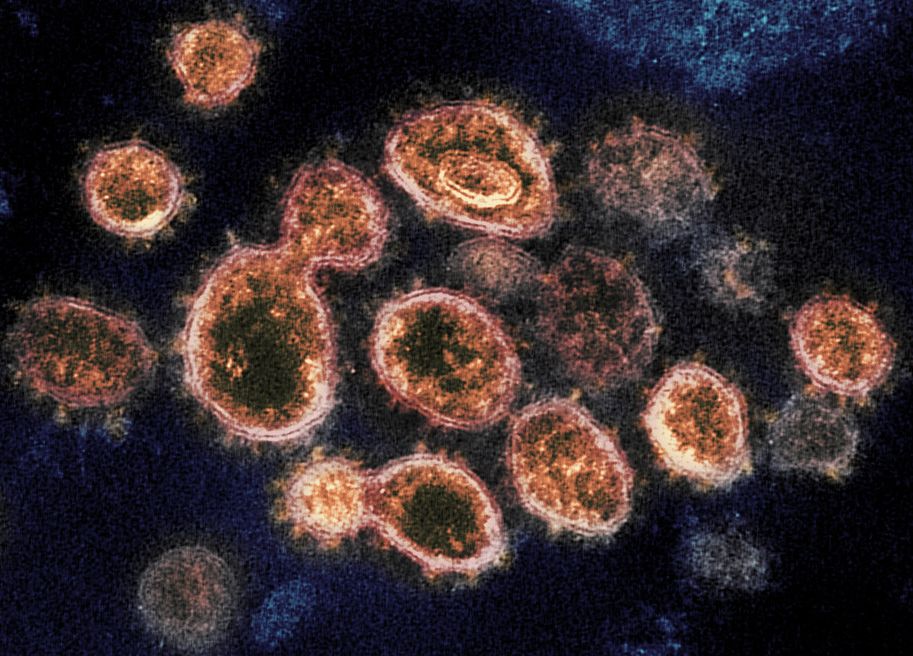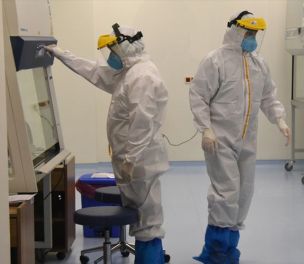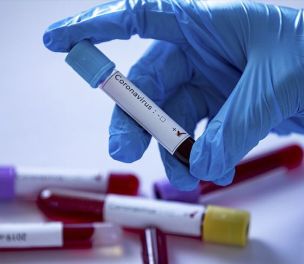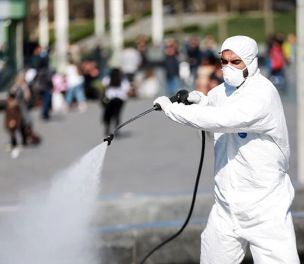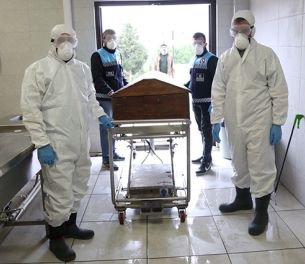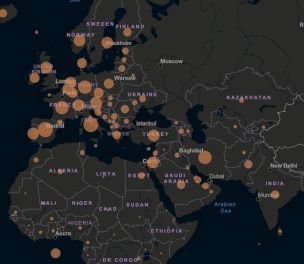Turkey's Coronavirus Death Toll Surpasses 1,000, Minister Denies Claims on Accuracy of Figures

Photo: AA
Click to read the article in Turkish
Turkey's death toll from the novel coronavirus pandemic has reached 1,006 as 98 people died in the last 24 hours, Health Minister Fahrettin Koca announced today (April 10) at a press conference in the capital Ankara.
The total number of cases has climbed to 47,029 with 4,747 new cases, he said, adding that 30,864 tests have been conducted since yesterday, bringing the total number to 307,210.
The mortality rate in Turkey stood at 2.15 percent, 12th highest among countries with a population exceeding 10 million, Koca further informed.
There are 1,667 patients in intensive care with 1,062 intubated patients while 2,423 have recovered so far, he said.
Claims regarding the ministry's figures
When asked about professional health organizations' claims that the actual number of deaths are higher than the official toll, the minister said "they have been transparent about the numbers."
The Turkish Medical Association (TTB) said in a statement on April 8 that Turkey's method of reporting coronavirus deaths might cause the official death toll to be lower than actual numbers as it did not use the codes suggested by the World Health Organization (WHO) to report the deaths. Death causes of people who died from coronavirus but without a positive PCR test were not recorded as Covid-19, it claimed. Koca did not go into details about what codes they used.
CLICK - All Updates on Turkey's Coronavirus Tally
Turkey reported its first Covid-19 case on March 11 and has been one of the countries with the sharpest increase in cases since then. World Health Organization's regional office for Europe stated on Wednesday (April 8) that "We are alarmed that Turkey has seen a dramatic increase in virus spread over the last week."
Critics also point out that the increase in Covid-19 cases does not match with death figures, which have been relatively steady.
The novel coronavirus outbreak began in China's Wuhan city in December 2019. It has now spread to at least 180 countries and territories, infecting 1.6 million people and killing more than 97 thousand, according to data compiled by Johns Hopkins University in the US. Over 360 thousand people have recovered from the disease. The US, Italy, China, Iran, the UK and Spain have been the hardest hit countries.
|
What is a coronavirus? Coronaviruses are a large family of viruses which may cause illness in animals or humans. In humans, several coronaviruses are known to cause respiratory infections ranging from the common cold to more severe diseases such as Middle East Respiratory Syndrome (MERS) and Severe Acute Respiratory Syndrome (SARS). The most recently discovered coronavirus causes coronavirus disease Covid-19. The virus was named SARS-CoV-2 by the International Committee on Taxonomy of Viruses.
What is Covid-19? Covid-19 is the infectious disease caused by the most recently discovered coronavirus. This new virus and disease were unknown before the outbreak began in Wuhan, China, in December 2019. What are the symptoms? Covid-19 symptoms include cough, fever, shortness of breath, muscle aches, sore throat, unexplained loss of taste or smell. How does Covid-19 spread? People can catch Covid-19 from others who have the virus. The disease can spread from person to person through small droplets from the nose or mouth which are spread when a person with Covid-19 coughs or exhales. These droplets land on objects and surfaces around the person. Other people then catch Covid-19 by touching these objects or surfaces, then touching their eyes, nose or mouth. Studies to date suggest that the virus is mainly transmitted through contact with respiratory droplets rather than through the air. How did the outbreak begin? Although health officials are still tracing the exact source of this new coronavirus, early hypotheses thought it may be linked to a seafood market in Wuhan. Some people who visited the market developed viral pneumonia caused by the new coronavirus. A study that came out on January 25, 2020, notes that the individual with the first reported case became ill on December 1, 2019, and had no link to the seafood market. Investigations are ongoing as to how this virus originated and spread. Sources: World Health Organization, Johns Hopkins University |
(VK)




